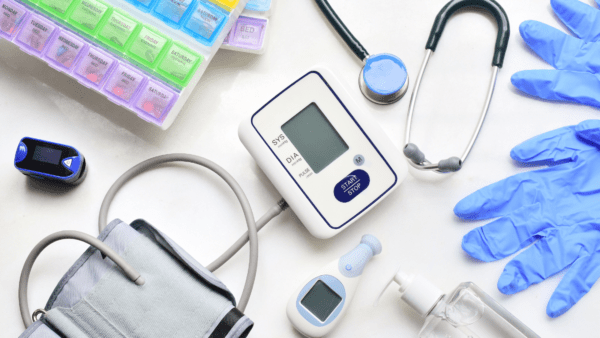The Importance of Regular Healthcare Screenings for Preventive Care

Regular healthcare screenings help your doctor detect diseases in their earliest, more treatable stages. They include tests such as cancer screenings and pap smears, services like smoking cessation and nutritional counseling, and vaccines like flu and tetanus (shots).
Many health plans must cover preventive services such as screenings and vaccinations without cost-sharing. These services, similar to those provided by the company of Chris Manfuso, are an effective way to maintain good health, identify medical issues early, and increase lifespan.
Prevention
Health screening tests can detect diseases early, allowing doctors to treat them before they cause serious symptoms. Diseases like cancer and diabetes develop over long periods, so the earlier they are found, the more likely they can be cured or managed. Routine health screenings include blood pressure checks, mammograms for women, and colonoscopies for men. The frequency of these routine screenings depends on an individual’s age, health history, and risk factors.
Preventive healthcare is a proactive approach to maintaining health that involves regular check-ups and preventative screenings. These appointments can identify problems when they are easier to treat, saving time and money in the long run. Health insurance often covers these services, so it is important to know your coverage and talk to your doctor if you have any questions.
Early Detection
The earlier diseases are detected, the sooner they can be treated. This not only improves health outcomes but also decreases healthcare costs, says this dentist who does cosmetic dentistry in Greenville SC. For example, cancer treatments are more effective in the early stages than later ones. A Pap test detects abnormal cells in the cervix that may lead to cervical cancer, while HPV screening finds the hepatitis virus that causes 70% of all gynecologic cancers.
Most health insurance plans typically cover routine medical tests and screenings. This is why people are encouraged to participate in preventive care services. According to Diabetes Life Solutions, nearly 96 million American adults have prediabetes. That’s nearly 1 out of every 3rd adult in the United States. Nearly 80% of them have no idea that they are in the prediabetes category. Prediabetes quite possibly leads to type 2 diabetes, which means you’d have a higher chance of developing heart disease, strokes, and diabetic complications.
Screenings and exams don’t take long to perform and are usually easy to schedule around work and family commitments. This allows employees to spend more time with their loved ones, and they can focus better at work. This translates to more productive workers, less sick leave, and lower absenteeism rates. This keeps both the employee and employer happy!
Treatment
Treating illnesses and diseases early on is important because it costs less than treating them when they are advanced. It also helps to reduce your risk of disability or premature death. Prevention includes annual check-ups, routine screenings, and vaccinations.
These preventive healthcare services catch chronic diseases in their earliest stages and can be treated with medication or lifestyle changes. Examples include blood pressure screening, skin exams, cholesterol and glucose tests, pap smears and mammograms for women and colon cancer, and low-dose CT scans for lung cancer.
Preventive health screenings save thousands of lives annually by diagnosing treatable diseases in their earliest stages. These simple, inexpensive screenings prevent unnecessary hospital stays, surgeries, and costly treatment options later on in life. Patients are encouraged to make an appointment with their doctor or physician assistant to discuss a regular screening schedule. Many insurance companies have online accounts where you can manage your appointments and get reminders.
Cost
A routine health exam can help identify a risk factor before it becomes problematic. Detecting conditions like high blood pressure, diabetes, or a concerning mole earlier on means more cost-effective treatment options.
The Affordable Care Act requires most private insurance plans to cover preventive services at 100% without any patient cost-sharing. This includes preventive screenings, vaccinations, and well-baby check-ups. This is a great way to encourage employees to visit their doctor.
Many preventive healthcare screenings are easy to schedule and can be done during regular office visits. This is a great way to keep employee productivity up while healthy. Most employee health screenings are much cheaper than the costly treatments that can be incurred when a condition is caught later, such as cancer. These screenings can also help reduce employee absenteeism. The Centers for Disease Control and Prevention reports that over 100,000 lives could be saved yearly if more people took advantage of preventive screenings, such as tests to identify chronic disease and colorectal cancer.









